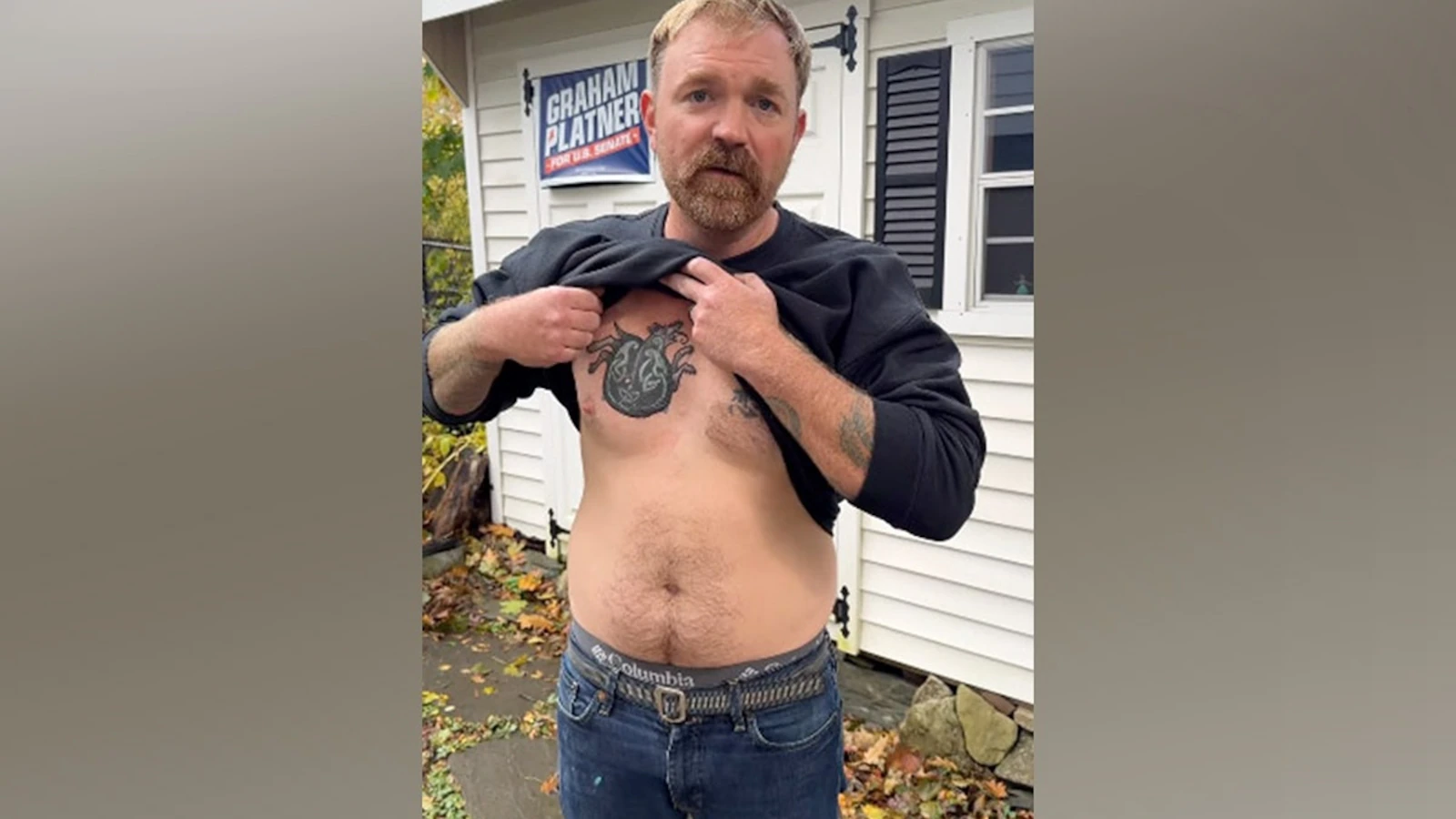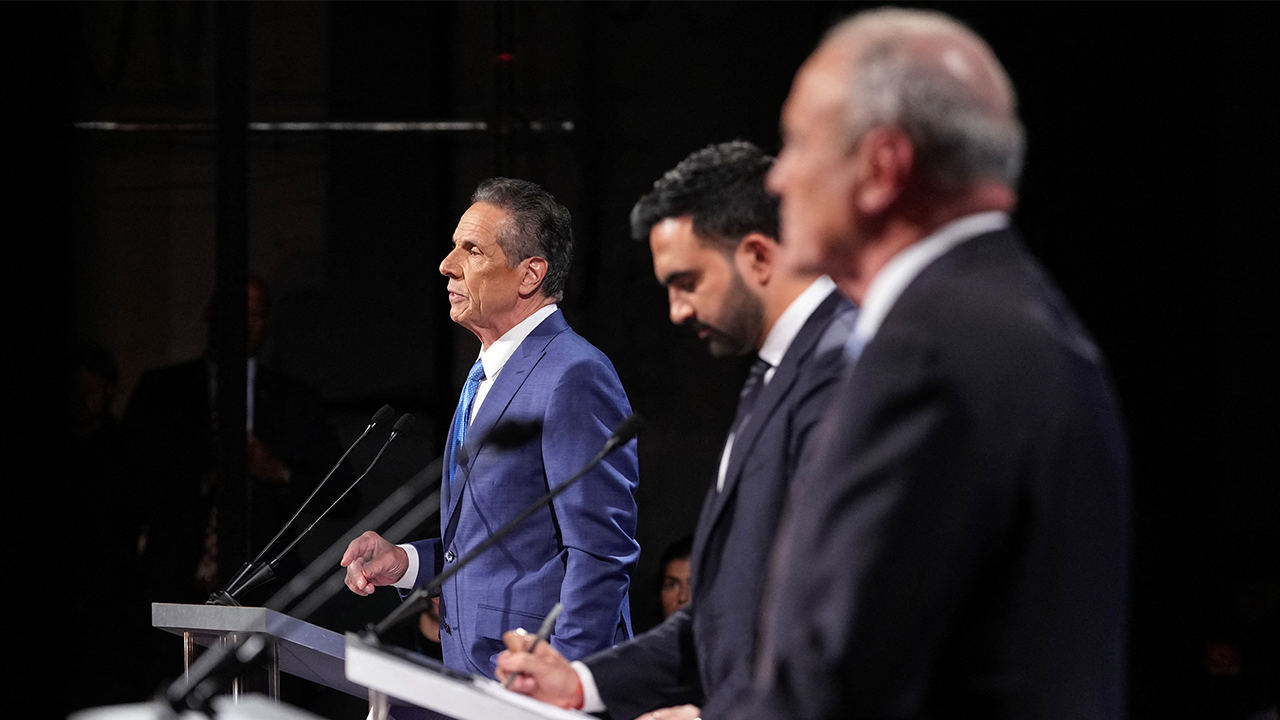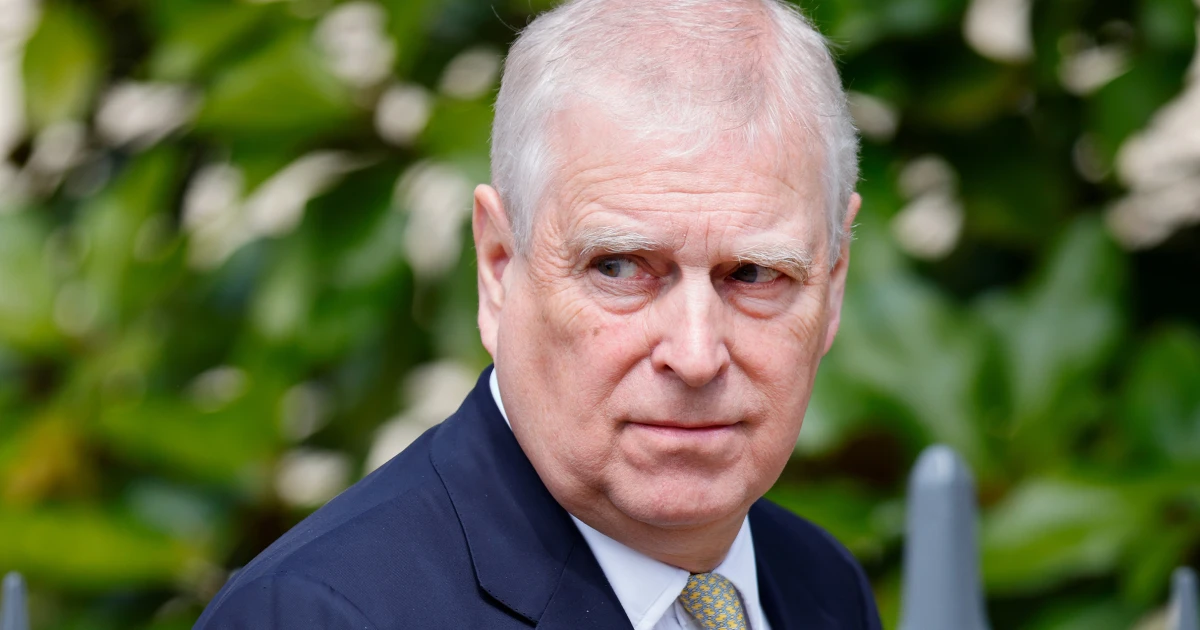Copyright ABC News

Maine Senate candidate Graham Platner said Wednesday he has covered up a controversial tattoo that appeared to have a resemblance to a Nazi symbol. Platner, a U.S. military veteran and oyster farmer who is running for the Democratic nomination for the U.S. Senate in Maine, said in an Instagram video that he got his "skull and crossbones" tattoo covered on Tuesday. "I have lived a life dedicated to antifascism, antiracism and anti-Nazism. I think that racism and antisemitism are a long scourge on our society and a long scourge on our politics. I think it has no place in our world. For that reason, I have gotten it covered up," Platner said in the Instagram video, lifting his shirt to reveal his new design of a Celtic knot with dogs -- "because my wife Amy and I have two wonderful dogs that we love a lot." "This far more represents who I am now, than even the skull and crossbones did, which I thought that it was," he said. "This has come up because the establishment is trying to throw everything it can at me. It is terrified of what we are trying to build here,” he continued. Platner said he got the tattoo "years ago" in Croatia with fellow Marines. He has denied recent reports that suggested he knew that his original tattoo resembled Nazi imagery. "It was not until I started hearing from reporters and D.C. insiders that I realized this tattoo resembled a Nazi symbol," Platner said in a statement to ABC News earlier Wednesday. "I absolutely would not have gone through life having this on my chest if I knew that -- and to insinuate that I did is disgusting. I am already planning to get this removed." The tattoo incident comes after Platner, who has generated buzz and has been endorsed by Vermont Sen. Bernie Sanders and other progressives, has come under attack for recently unearthed and controversial social media posts where, among many things, he called himself a "communist" and suggested that some political resistance should include firearms. Platner apologized for the series of now-deleted posts, which stretch back to 2010, in a phone interview with ABC News last week. He attributed much of his caustic language to his feelings of post-traumatic stress disorder after returning from combat in the Middle East, saying he felt unmoored from any community and disturbed by his experiences overseas.



